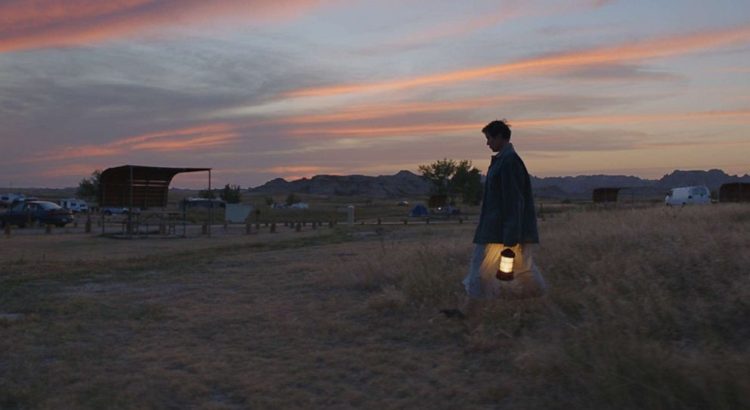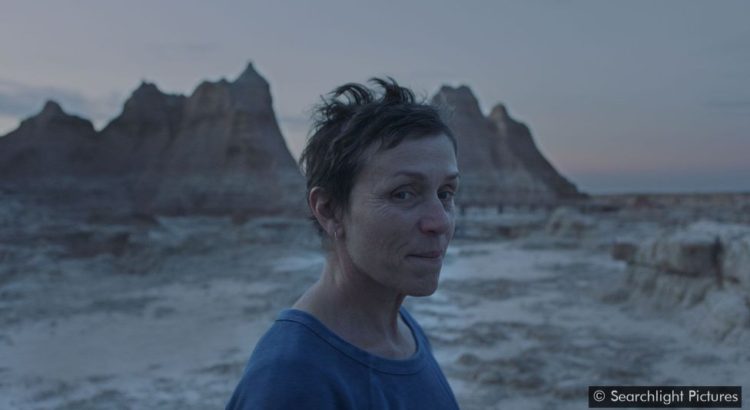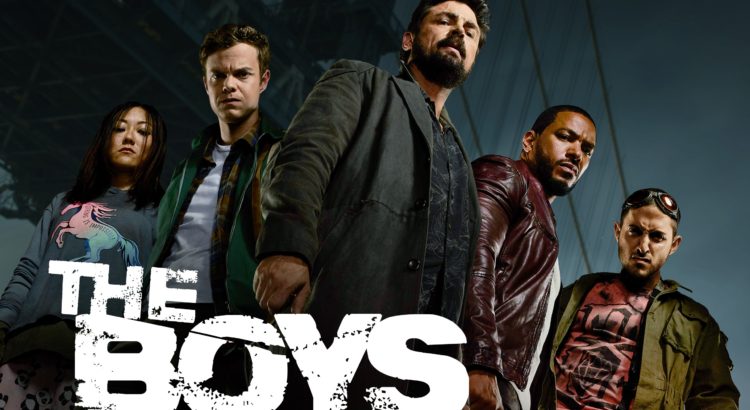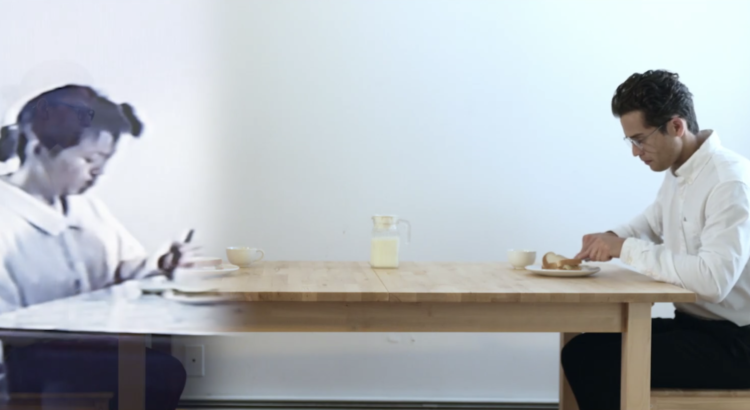Minari is an upcoming A24 and Plan B Entertainment film. Starring Steven Yeun, Han Ye-ri, and Youn Yuh-Jung, Minari follows a Korean-American family that moves to a farm in Arkansas in hopes of achieving their own American Dream. The film has premiered at several film festivals to critical acclaim, with nods towards director Lee Isaac Chung as well as actress Youn Yuh-jung. The film will not be released until February 12, but it is currently available as a limited release – I will be screening it through Film at Lincoln Center. I’m excited to see more foreign language films making their way towards American audiences, and I’m really looking forward to seeing Minari!
Category: Film

REVIEW: Nomadland
A large number of award-winning films are nothing like the action-packed blockbusters that generate billions of dollars at the box office. Rather than being driven by thrilling chase sequences and clever plot twists, these films tend to just showcase a series of conversations between characters. One such film is director/writer/editor Chloé Zhao’s Nomadland, one of the frontrunners for the upcoming Oscars season. The film stars Frances McDormand as a modern-day nomad with nothing but a van. It is the first film to win the top prize at both Venice Film Festival and Toronto International Film Festival.
Nomadland is a very subdued film. It is a testament to Zhao’s skills as a filmmaker: the acting is incredible, especially since Zhao elected to cast several real-life nomads rather than strictly professional actors; the writing of the dialogue between the characters is very realistic; and the film is visually stunning with its expansive shots of mountains, roads, rocks, trees, and beaches.
Frances McDormand proves again that she is a phenomenal actress. Her character, Fern, is quiet and pensive, and it’s clear how great a toll the effects of the Great Recession have taken on her, and therefore her relationship with her family. McDormand portrays Fern’s frustration through a singular snarky comment to her sister and hesitant but still firm defensive interjections when she finds herself in disagreement with others. There isn’t a classic Oscar-bait huge argument scene with tears and screaming and shattering of glasses, but the way in which McDormand and Zhao have elected to tell Fern’s story is just as – if not more – effective.
The role of the nomads that Fern crosses paths with and befriends are the driving force and the heart of the film. Most of them are victims of difficult situations that led them to choose a nomadic lifestyle, but they are all very accepting and realistic about where they are. Rather than to wallow in self-pity and bitterness, they instead choose to celebrate what life has to offer, vowing to live a life free from regret, and they see no benefit in clinging to what’s of the the past. In sharing these real nomads’ perspectives on life, there was room for the dialogue to be incredibly exaggerated, however it seems that the casting preserved the authenticity of the actor-characters’ sentiment, and of the modern nomadic lifestyle.
Nomadland is a celebration of life in the most unassuming way possible. The film meanders through natural landscapes, and stops for quick chats with the few individuals it finds traversing the scenery. Simply, it is very moving. It’s melancholy, yet it never fails to be hopeful.

PREVIEW: Nomadland
Nomadland is a 2020 film based on the non-fiction book Nomadland: Surviving America in the Twenty-First Century. Directed by Chloé Zhao and starring Frances McDormand, the film follows a woman who, after losing everything during the Great Recession, lives as a modern-day nomad and travels by van through the American West. The film was initially intended to be released in theaters on December 4th, but due to the COVID-19 pandemic, Searchlight Pictures opted for a February 19th, 2021 theatrical release. However, the film is currently being screened virtually by Film at Lincoln Center, with its final screening on the 10th. All tickets are now sold out, but keep an eye out on the Film at Lincoln Center’s Twitter as they released some extra tickets earlier this week.

REVIEW: The Boys, Season 2
The Boys is a fascinating series that flips the superhero film industry on its head. If you’re a fan of Marvel’s witty humor and exciting plotlines but are ready for a radical shake-up, The Boys is for you. In an action-filled and suspenseful season, The Boys exposes the distrust and capitalism in our media institutions and questions the very basis of how we define a “hero.”
The Boys begins like any other superhero story: Superheroes are real, they protect the people, they act for the good of society, blah blah blah. Very soon, however, we learn that instead of being “freelance” superheroes, most well-known and respected superheroes are managed by a company. From here, viewers are brought on a twisted journey of political satire, ludicrous violence, and emotional complexity.
If Season 1 touches on the ills of society, Season 2 dives into them. It shows us how gruesome stories are strategically perverted into heartwarming publicity stunts. These disturbing events feel morally awkward, and moreover, they prompt me to think about the trust we afford big business and mainstream news outlets. What remains unseen?

Season 2 also asks us to consider the hidden ways that our institutions and public figures uphold racial hierarchies. Some of the portrayals of racism in The Boys unfold slowly and subtly , suggesting that white supremacy has not disappeared, but rather has cryptically evolved into less transparent forms. Season 1, and especially Season 2, encourage viewers to take a critical approach to how we interpret information, and furthermore, to how we evaluate forces in society that perpetuate racist ideals without using explicitly racist language.
The Boys takes place in a made-up world, but it mirrors our own in ways that feel eerily on point. We don’t have superheroes, but we do have public heroes that we view as emblems of morality. The Boys asks us to consider the validity of our public hero worship; especially when corruption, profit-seeking, and racism often remain behind closed doors and out of the public eye.
Just when you think you’ve figured something out, a new secret is revealed and the plot takes an unexpected turn. This pattern of last-minute plot twists made me contemplate how we think of absolutes. Think about the stories you grew up hearing as a kid: there are heroes and there are enemies. We romanticize heroes and we condemn enemies. But are they really binaries? The Boys blurs these lines, and by doing so, perhaps brings us closer to reality.

All seasons of The Boys are available on Amazon Prime. I would recommend watching Season 1 before starting Season 2, as many of the characters’ backstories develop intricately before the start of the new season. Fair warning, Season 2 ends on a wild cliffhanger, so it’s looking like a Season 3 might be coming soon.
Content warning: The Boys includes graphic violence, refers to (but does not explicitly show) rape, and includes strong language.

Review: The Queen’s Gambit
If you are looking for a quick, compelling and engaging show to watch over this Thanksgiving break, The Queen’s Gambit is a perfect choice. The show follows a young woman who is orphaned around age 8, and finds her calling as a prodigy chess player. She also discovers her addiction to drugs and alcohol, and tries her hardest to become the best chess player in the world, while struggling with her addictions and other personal issues.
First of all, this show was so good that, after the first two episodes, I couldn’t stop thinking about it and had to finish the entire thing in one day. I was so impressed by main character Beth’s struggles of breaking into an almost entirely male game, and making waves in a way that no one expected. It was so exciting each time she won a game against an opponent who underestimated her skill, as almost all of her male competitors did. It was also a bit disheartening seeing the way some people treated her just because of her gender, and also how much the media focused on her gender as an important piece in her rise to fame. I thought the show did a really good job at showing the gender disparities during that time period, and the real issues she would have faced as a woman in the chess world.
Speaking of showing the time period, the integration of small details really helped immerse you in the 1950s and 1960s. I love how Beth has great fashion taste, and so we got to see so much of what the popular styles and dress was during that time. I especially appreciated that as she continued to compete and grow older, she slowly transitioned from long, ankle length dresses with frills and colors, to a more sleek look, including mostly pants and almost no skirts or dresses. This really helped to show both the passing of time and the emergence of some women’s freedoms, as well as Beth coming into her own personality and doing what she wanted.
It was also so inspiring, as it always is, to see someone go from having nothing to being internationally known and respected, as well as recognized for her incredible talent. I was riveted by her public face and her private one, in which she was a ruthless, confident talent to the world, and a lost, lonely drug addict when alone. There were several moments where we sort of saw this switch very quickly, and I applaud Anya Taylor-Joy for her talented acting in this difficult role.
I would recommend this show to anyone and everyone. I learned a lot more about chess than I will probably ever need to know, and the show was just the right amount of heart-wrenching, exciting, and interesting so that I couldn’t focus on anything else until I found out what happened to Beth and her chess career.

Review: Dream in Silence (2020)
Running time: 75 min
Director: Huang Xin / Bao Ye
Countries: USA, China
Genre: Documentary
Dream in Silence has all the qualities an engaging documentary should have: an immigrant story, set in NYC, about a man’s end-of-life dream, and a collision between young and old. Self-proclaimed as a dying man, the subject, Fang Sir, is a funny, sensitive, and unpredictable graybeard who is like someone out of fiction. Before he immigrated to the U.S., he was a promising director in Taiwan. After decades of being distant from creative business, he decides to remake what he calls a “western” version of his award-winning short film from 40 years ago. A dozen young Chinese filmmakers were on board to help Fang Sir fulfill his dream. However, if you think this story may be no different from the touching ones that happened in the home-renovation shows, you might want to hold that thought, because how Fang Sir’s film project started and how the shooting went through are just beyond bizarre. Fang Sir isn’t any ordinary guy. He is wacky. He has a young heart. He makes you love and hate him at the same time.
Fang Sir’s initial capital is $300 that is supposed to be used on fixing his teeth. He tries to convince his producer, whom he met while waiting in the line for the restroom, to ask Ang Lee for financial support. The only thing that crossed their paths was that Lee had won the same Golden Harvest Award as Fang Sir did 30 years ago. He joked about the possibility of getting hit by a car and then using the insurance money to make his film, but it seems odd that he often positions himself not as the point person solving problems but more like a demanding customer. People on his team seem to be mostly film school graduates and professionals in the industry. By contrast, Fang Sir is laughed at as an amateur and is not on the same page with his young teammates.
Dream in Silence follows Fang Sir and his team’s preparation and official filming.  The original short film, Silence (缄默), was directed by Fang Sir and shot by Christopher Doyle in 1979. Unsatisfied with Doyle’s cinematography, Fang Sir reshot the film in 1989. The 2020 version is the second-time remake. Fang Sir is currently consulting another film crew to make his third remake because he wasn’t happy with their collaboration. It is questionable why Fang Sir is so obsessed with this one story and yet has not developed anything new to give it a new life after 40 years.
The original short film, Silence (缄默), was directed by Fang Sir and shot by Christopher Doyle in 1979. Unsatisfied with Doyle’s cinematography, Fang Sir reshot the film in 1989. The 2020 version is the second-time remake. Fang Sir is currently consulting another film crew to make his third remake because he wasn’t happy with their collaboration. It is questionable why Fang Sir is so obsessed with this one story and yet has not developed anything new to give it a new life after 40 years.
The fast-paced editing in Dream in Silence is a successful hook and makes Fang Sir’s filmmaking journey incredibly entertaining to watch. The documentary not only truthfully documents Fang Sir’s over-excitement and adorable statements, but also his insecurity as an artist, his panic moments, and self-contradiction. For better or for worse, Dream in Silence does not pity Fang Sir and does not track down the reasons behind his awkward and irresponsible behaviors. It seems to me that he relies more on the team’s help than the film crew ever needs him. Young filmmakers took it for granted that Fang Sir was lonely and much happier when they were together, but that might be too shallow of a conclusion to make. I can’t help to compare his life with the film he is remaking. Coming to the U.S. did not help him achieve his movie dream but rather became a thorn in him, for he could not stop thinking about what-ifs. The reality has poured cold water on his dream, and he gradually lost his voice.
Now playing at Philadelphia Asian American Film Festival till November 15.






